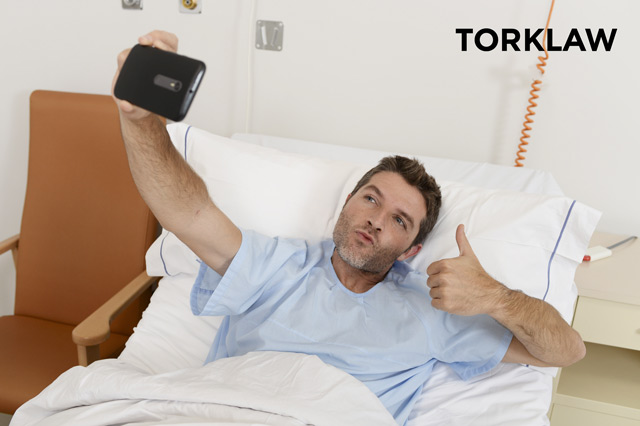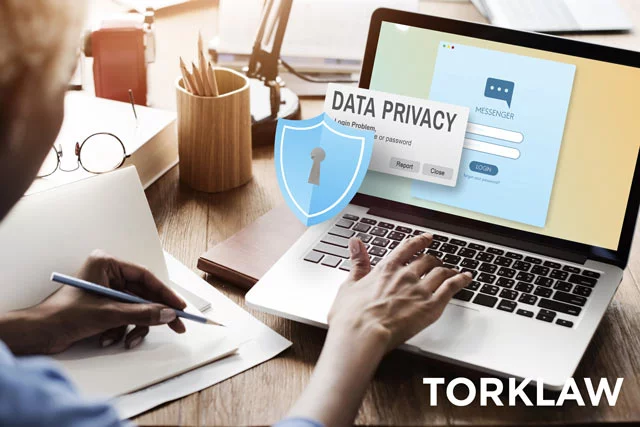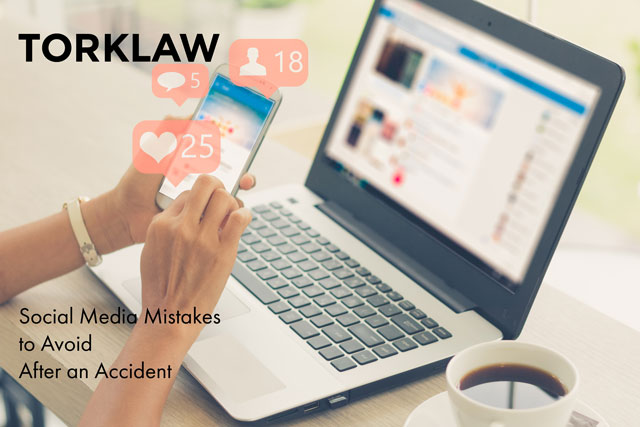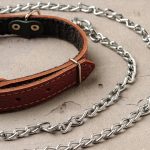Social media mistakes don’t just damage your reputation – they could damage your ability to collect damages in your accident injury claim.
Social media sites are popular ways for people of all ages to communicate and express themselves. Millions use Instagram, Facebook, and Twitter to share highlights of their lives with family and friends. However, posting personal information is risky: we may inadvertently share photographs, comments, personal opinions, or details of our lives with total strangers. While social media can be a great way to update your circle, it is important to remember that anything posted online can be seen by almost anyone, even with strict privacy settings.
You should be especially cautious about what you post on social media after you are injured in a car accident. While it may seem drastic, there are many reasons to consider decreasing or even shutting down your social media presence until your claim is resolved.
Your Social Media Mistake May Wreck Your Claim
A car accident lawsuit can be complicated, and the claims process can be challenging, both emotionally and financially. Insurance companies and defense attorneys have a mandate to ensure their client pays as little as possible. It is important to avoid social media mistakes that will make it easier for them to pay you less than you rightfully deserve.
Information Will Be Used Against You
Under the law, both the insurance company and defense counsel have the right to demand access to your social media accounts to gather any evidence that is relevant to the case, including photos, videos, timeline conversations, and location check-ins. To avoid jeopardizing your car accident claim, it is crucial to keep all details of the accident away from any type of public forum. Anything you post about the accident on social media, blogs or websites can and probably will be used against you to raise questions about your claim.
In fact, it doesn’t matter whether the information you post involves your accident or not. For example, if it is discovered that you posted on social media moments before a car accident, the defense might argue that you drove distracted and may have been at least partially responsible. If you shared a photo of yourself dancing with your friends or going on a trip with your family after the accident, it may be argued that your injuries weren’t limiting enough to merit the amount of compensation you are seeking. These strategies are often employed to reduce the value of plaintiffs’ (the injured party) claims.
Once you post something, it is not ethical for a lawyer to advise you to delete it, because that may later be viewed as destruction of evidence. So, to ensure that you don’t make any social media mistakes that can adversely affect your claim, it is best to suspend all online social activity until your claim is successfully resolved.

Is Anything You Post on Social Media Private?
It’s naive to believe that anything you post on social media is strictly private. Many of us have set privacy settings on Facebook, for example, so that our posts are viewed by a limited group of individuals who are known to us. So, we post comments, images or videos that we might not ordinarily post to a public forum. Still, it may be possible for one of your friends to share your post, or even take a “screenshot,” which could exist later even if you delete the post.
It is also entirely possible for your private content to become a matter of public record. The New York Court of Appeals recently ruled that even private Facebook posts can be subject to discovery if they are relevant. The court stated that when a person has filed a claim against another party for injuries suffered, the party against whom the person has filed has a right to review their medical records and other information, including social media. Another New York judge ruled that a woman’s Instagram posts are admissible as evidence in her personal injury case. It’s critical that you are aware of what you post, because it might not be as private as you think it is.
What Should You Do – or Not Do?
There are a number of do’s and don’ts for using social media as your car accident claim is pending. Here are a few tips when it comes to social media mistakes and car accident claims.
Don’t Share Details About Your Accident
Being injured in a car accident can be a traumatic experience. So, it is natural for people to want to share details not just about the accident itself, but also their injuries and information about how they are progressing with their recovery. Social media is a place to inform all your friends and family members at the same time.
The thing is, you are more likely to share “good news” on social media than post about your fears and struggles. Even if you are suffering from severe pain after your car accident and are taking medication to suppress it, you are more likely to talk about your recovery milestones and improvements. However, when you comment on social media that you are “healing well,” or post about your post-recovery activities, it may cost you a lot of money. The insurance company may possibly use these positive social media posts as evidence that your pain and suffering isn’t what you are making it out to be.
So, while a Facebook post that may allay the fears of your parents on the other coast, they may also give the insurance company and defense lawyers information to declare that you are not as severely injured as you claim.
Do Not Post Photos or Videos Pertaining to the Accident
You may have the urge to post images of your damaged car or photos showing your injuries. Resist this temptation and refrain from posting anything that may be a crucial piece of evidence in the case. You don’t want everyone to see or have access to them, because the photos may not depict the whole story, and the defense may use the images to convince a jury that you are not as injured as you said you were.
In fact, if you are planning on filing a car accident claim or filing a lawsuit, it is best not to post any photos or videos online. Even if the photo or was shot before your injury, it may be taken out of context.
Photos and videos are powerful pieces of evidence. People tend to believe what they see, even if it does not depict all the facts.

Do Not Share Medical Information Online
Do not post updates about your medical condition, doctor’s visits, or medical procedures you may have had. Don’t list medications or medical equipment you’ve had to use. If you are raising money with a GoFundMe campaign or any other type of crowd-funding campaign, put minimum details about the accident and your injuries, as this information may be used against you.
Make Sure Family Members Don’t Make Social Media Mistakes
While you may not post about your accident or injuries online, others might post things about you. For example, if you attend a party or gathering, a friend might take a photo of you and post it on their Facebook feed. Let people know in advance that you do not want photos of you “tagged” or posted anywhere online.
Along the same lines, it is important that you stay away from commenting on other people’s social media sites, particularly when it comes to your case. If your car accident case receives media attention for some reason, avoid reading comments attached to your story. Do not react or respond to public comments in any way. What you say in these “comments” sections can also be used against you.
Keep Track of All Your Social Media Accounts
Today, most of us have a few different social media accounts, which serve several purposes. You easily remember those accounts you use on a regular basis, but you may have accounts you do not use that often. If it’s an account you don’t use much, you may want to get rid of it — before you do, however, talk to your car accident lawyer to make sure it doesn’t give the appearance of destroying evidence. If you are changing privacy settings on your accounts, be sure to do that for all your accounts. Be vigilant about monitoring all of your social media footprints and to not leave out anything.
Be Careful With “Check-ins” On Social Media
It might seem harmless to let your Facebook friends and followers know where you’re eating lunch, or watching a movie during the weekend. Some sites such as Foursquare and Facebook can show the public where you are and in what activities you are participating at any given time. However, if you claimed to have suffered an injury that limits your mobility, “checking in” to the gym on Foursquare might result in problematic and contradictory evidence.
Never Post Regrets or Apologies
As personal injury lawyers, we often advise clients never to admit fault or apologize to anyone after a car accident. This is because you don’t know all the facts until an investigation has been completed. This applies to social media posts as well. For example, even a simple statement such as “I wrecked my car,” may imply liability. Never use words like: “I’m sorry,” or “It was my fault,” when commenting on social media after your accident. These simple words can drastically reduce the amount of your settlement.
Don’t Delete Anything
Do not second-guess yourself and delete posts if you feel you have made social media mistakes. It is very likely that the insurance adjuster or defense attorney already has a screenshot of your posts. If it is discovered that you deleted something, you may incur legal trouble for destroying evidence, or negative optics if the case goes to a jury trial.

Guard Your Privacy at All Times
Be sure to set all social profiles to private because it makes finding your posts more difficult and limits access to your accounts. Ask your friends and family members to tighten up their privacy settings so no one can reach your information through them. However, it is important to remember that doing so doesn’t make your information impossible to obtain. If you wish to be safer, delete your accounts altogether or stay completely away from social media.
Do not accept any friend requests or “follows” from people you don’t know. This is particularly true when you are waiting to resolve your car accident claim. You never really know who is behind a social media profile. Insurance companies and defense lawyers often enlist individuals directly connected with the case to “following” or “friending” an injured plaintiff on social media.
Talk to Your Car Accident Lawyer
The most important step you can take if you have been injured in a car accident is to contact an experienced car accident attorney who will fight to protect your rights every step of the way. If you have any concerns or questions about your social media accounts or postings after an accident, do not hesitate to ask your lawyer.
At TORKLAW, our knowledgeable car accident lawyers can guide you through what can be a complex process and help you avoid pitfalls, like social media mistakes, that may jeopardize your claim. Call us at 888.845.9696 for a free consultation.



